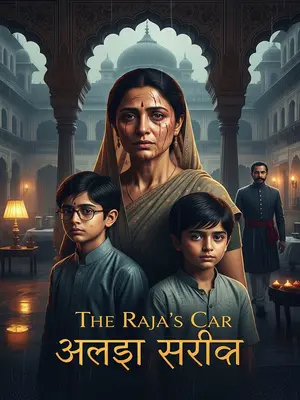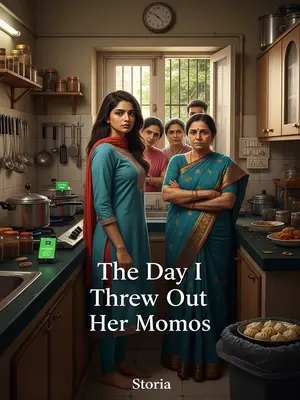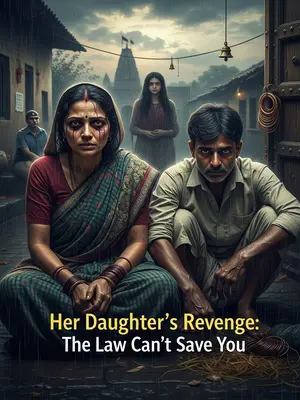Chapter 2: The Shadow of the Sharmas
Later, I pieced together the truth from whispers that drifted through the Sharma bungalow like incense smoke. The maids gossiped as they scrubbed the verandah, and the driver muttered with the gardener about the new madam. I picked up their words, one crumb at a time.
The Sharmas were rich beyond imagining. Kabir—the boy who’d kicked me—was the young master, the ‘baba’ every servant obeyed with a shiver.
They had a line of cars outside, a watchman who never let me near the iron gate, and rooms so big even laughter got lost in them. Kabir had his own keys, his own rules. Even the cook called him ‘baba’ with a strange mix of fear and respect.
They said Kabir’s mother died because my mother poisoned her heart with jealousy. The story twisted in the kitchen air, sticking to the walls. “Ab toh ghar mein na shanti hai, na sukoon,” the old sweeper woman sighed, her eyes skimming over me.
Kabir hated me. I saw it in his eyes, sharp as the edge of a broken glass. Sometimes, he’d mutter curses—sometimes in English, sometimes in clipped Hindi—but always cold.
After that, I tried to vanish whenever he was near. The memory of drowning clung to me like the smell of chlorine.
My feet froze on the marble if I heard his footsteps—heavy, impatient. The servants would scatter at his approach; I learned to blend into the curtains or slip out to the garden, pretending to hunt for fallen guavas.
But how could I really escape when we lived under the same roof?
The house was huge, but walls thin for gossip and thinner for grudges. His shoes would appear at the threshold of every room I entered, as if summoned by my presence. Every corridor echoed with his thudding impatience.
One rainy day, I rushed in without removing my slippers, only to see Kabir’s white SUV glide up behind me.
The monsoon wind slapped my cheeks, my chappals squelched on the wet marble. My hem was heavy with muddy water. Kabir’s SUV gleamed, untouched by rain or dust. Outside, the world was a blur of grey bougainvillea and dripping leaves.
The servants scurried to greet him, some holding umbrellas as if he were a raja. The driver tried to take his bag, but Kabir brushed him off, his eyes scanning the porch—looking for trouble, or for me.
I shrank into a corner, head down, praying to be invisible. My heart thudded as I fiddled with my slipper, hands shaking so badly I almost dropped my notebook.
He stopped at the door. “Shoes are dirty,” he announced, each word like a slap. Rainwater trickled down my neck as I dared not look up.
Servants scrambled to wipe his shoes, but he jerked his chin at me, trembling in the corner.
The older maids glared, their eyes warning, “Don’t make it worse.” My body tensed, bracing for a storm.
“You—saaf kar, jhuk ke.”
My lips pressed tight, fingers twisting the hem of my skirt. His authority left me no choice; my feet moved on their own.
I stepped forward, took the rag, and crouched down.
My ears burned as the cold marble seeped through my salwar. My fingers trembled as I picked up the rag. The smell of polish and leather stung my nose.
“Jhuk ke saaf kar.”
He wanted me to bend down and touch his shoes. I swallowed the humiliation and knelt, the stone biting into my knees. One maid whispered, “Bas, ab ho gaya,” but nobody stopped him.
As I bent to wipe, he kicked me aside.
I sprawled on the floor, elbow scraping the stone, biting back a cry. My bindi slipped from my forehead, landing near his shoe.
“Spineless,” he muttered, as if I was an insect. The others looked away, pretending to be busy.
Clutching my sore arm, I thought, Bones that are too hard break. Maybe it’s better to be spineless.
In my mind, Nani’s voice whispered: “Bachche, taqat sirf dikhane ke liye nahi hoti.” Maybe bending is how you survive. I tucked the lesson away, with all my other quiet humiliations.
And as I picked up my fallen bindi, I wondered if I’d ever stop feeling like an outsider in this house.








